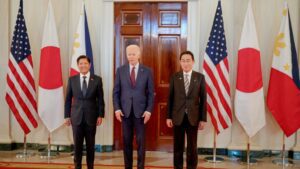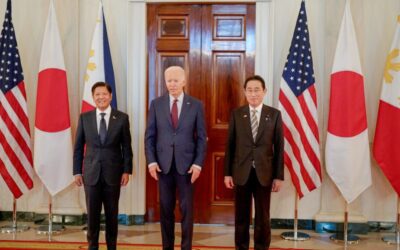“Domestic remedies have been ineffective at providing redress and at halting continued abuses. The power imbalance between victims of state violence, and perpetrators who have the backing of government apparatuses, is grave. Structures to redress this imbalance are lacking.”
By ANNE MARXZE D. UMIL
Bulatlat.com
MANILA – Human rights violations in the Philippines have intensified and the domestic remedies available for the victims are not working.
These are some of the highlights of the first report by Independent International Commission of Investigation into Human Rights Violations in the Philippines or Investigate PH, an international body which conducted an independent probe on human rights violations in the Philippines. It was formed after the United Nations Human Rights Council adopted a resolution extending technical assistance on the human rights situation in the Philippines.
In its first report virtually launched from Geneva, March 16, the group declared, “Domestic remedies have been ineffective at providing redress and at halting continued abuses. The power imbalance between victims of state violence, and perpetrators who have the backing of government apparatuses, is grave. Structures to redress this imbalance are lacking.”
Investigate PH looked into 49 cases that occurred during 2020 and 2021. Its commissioners were also able to interview the victims and witnesses through phone and online platforms. They also held two sessions of plenary hearings where victims and witnesses presented their testimonies.
Investigate PH said that these cases “offer detailed evidence that domestic remedies for such violations are insufficient.”
The global mission cited 10 reasons:
- The police and military are perpetrating violations — and obstructing investigations;
- Investigations of violations are not impartial;
- Available mechanisms for civilians to hold police and military accountable are failing;
- Court protections are inaccessible, slow, and discriminatory;
- Government’s National Task Force to End Local Communist Armed Conflict (NTF-ELCAC) constricts recourse to government agencies;
- Counter-insurgency activities are targeting lawyers, denying victims access to independent counsel;
- Efforts to challenge unjust laws through legal channels are being dismissed in court or repressed;
- Opposition political voices providing a check on the armed forces and executive power have been eliminated from the Supreme Court and Congress;
- Independent institutions and alternative platforms for accountability have been eviscerated or made practically inoperative;
- Even when remedies are secured, they are inadequate justice.
Jeanne Mirer, president of the International Association of Democratic Lawyers (IADL), said that obstacles accessing domestic remedies destroys the semblance of accountability.
“Accountability of the police and government wrongs are the hallmarks of international standards… the right to an effective remedy for government wrongs or the wrongs implemented by the government through its actions is the cornerstone of all human rights instruments which the Philippine government has ratified,” Mirer said during the virtual launch.
Human rights defenders, activists and relatives as well as victims themselves have been accessing legal remedies available in the country by filing charges against rights violators. While there are success stories, many of those who filed charges against rights violators did not get justice despite ample evidence.
The Investigate PH noted the cases of veteran journalist Margarita Valle who was arrested by police operatives on June 9, 2019. She was in Laguindingan Airport, Cagayan De Oro when the police served a warrant of arrest. She was detained and held incommunicado for almost 12 hours. The CIDG admitted that it was a case of mistaken identity.
Valle filed a complaint before the Ombudsman against 17 members of the military and the police. The Ombudsman dismissed the charges, saying it “found no substantial evidence for the grave misconduct and grave abuse of authority.”
Investigate PH also cited the Court of Appeals’ dismissal of Karapatan and National Union of Peoples’ Lawyers separate petitions for writ of amparo and writ of habeas data.
The groups sought protection from the high court as their respective members were consistently subjected to red-tagging, which in many cases has led to their death.
The mission also looked into the case of the victims of the government’s so-called war on drugs, including the death of 17-year-old Joshua Laxamana. The victim’s mother filed criminal and administrative charges against the policemen who conducted the operation but the complaint was dismissed. The Ombudsman stated that “the killing of her son was a result of a legitimate police operation that was carried out within the ambit of the law.” She elevated her complaint to the Supreme Court but it only affirmed the Ombudsman’s findings.
Escalating rights violations
Mirer said that their investigation shows that the Philippine government has decided to silence human rights through repression.
Investigate PH noted that political repression by state forces has intensified and become more brazen since June 2020, and the newly passed Anti-Terrorism Act (ATA) as well as the NTF-ELCAC “have provided institutional mechanisms that facilitate these human rights violations.”
“There is a sense of urgency here. The killings and degradation of human dignity are escalating as seen in the Report. The UNHRC and the world has to rise to the challenge of putting an end to this. We have to act now and save innocent lives while we still can,” Investigate PH Commissioner Rev. Dr. Susan Henry-Crowe said.
Suzanne Adely, president of the National Lawyers Guild in the US, said the killing of nine individuals on March 7 is an alarming update “but sadly reflective of too much bloodshed in the repression that we have seen in the recent years.”
“We must all act to end human rights violations and uphold the integrity of the laws that were created to protect the people,” Adely said.
Other commissioners pointed out that the Duterte administration used COVID-19 to cover state repression.
Dr. Agnes Abuom of the World Council of Churches said that by using the pandemic rules and regulations, it is easy for state mechanisms to silence people, undermine, if not destroy the democratic and the peace gains of the Filipino people to isolate them and continue the war against the people.
The report cited the cases of extrajudicial killings last year amid the pandemic, including those of human rights defender Zara Alvarez, National Democratic Front of the Philippines consultant Randall Echanis, and nine Tumandok in Panay.
The commission is pushing for independent investigations “to help improve the human rights situation in the Philippines, exert accountability, and deliver measurable as well as reliable justice to victims.”
The global mission has also asked the “International Criminal Court (ICC) to receive the initial and succeeding reports of Investigate PH and expedite the process of bringing the preliminary examination to a conclusion.”
They also urged the ICC to “make a decision on whether to seek authorization to open an investigation into the situation in the Philippines.”
Investigate PH said that the first report is an update on the human rights situation in the Philippines after the Office of the High Commissioner on Human Rights (OHCHR) released its report in June last year.
It was also presented to the UN High Commissioner for Human Rights Michelle Bachelet on March 15.

![“Domestic remedies have been ineffective at providing redress and at halting continued abuses. The power imbalance between victims of state violence, and perpetrators who have the backing of government apparatuses, is grave. Structures to redress this imbalance are lacking.” By ANNE MARXZE D. UMIL Bulatlat.com MANILA – Human rights violations in the Philippines have intensified […]](https://www.altermidya.net/wp-content/uploads/2021/03/StopTheKillings-e1616042611424.jpeg)








0 Comments